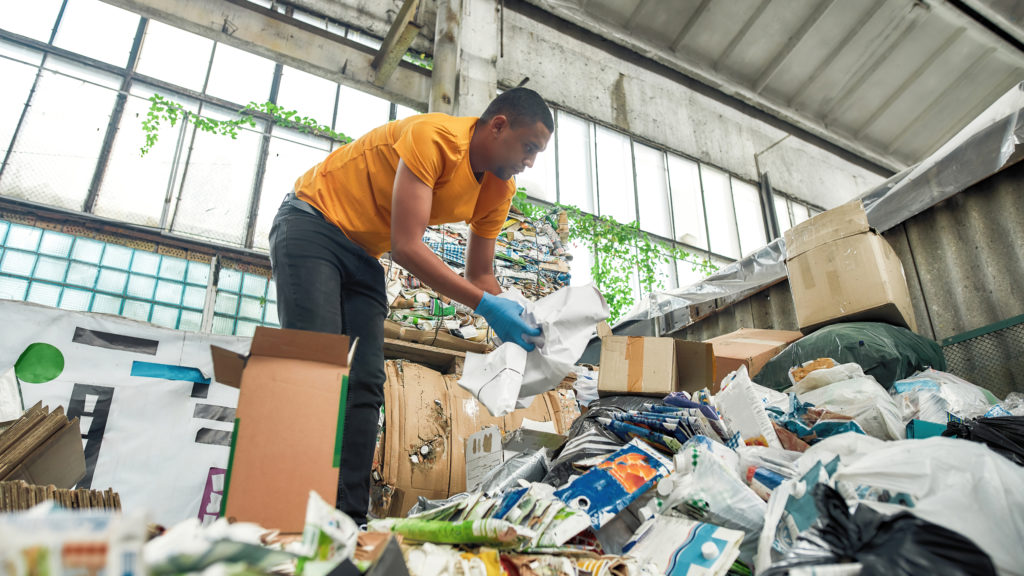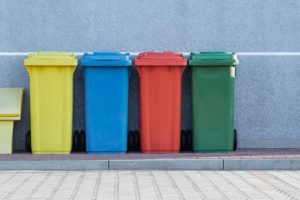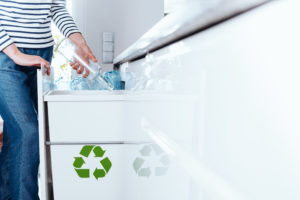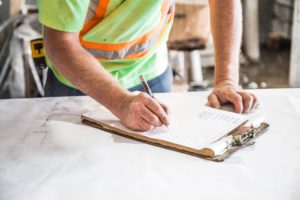
Blog
State of the Union Expectations: Make Recycling Part of the Environmental Agenda
The Biden-Harris administration has made environmental sustainability core to its agenda — and with good reason. As the planet heats up and the stakes get higher, the need to take a holistic view of sustainable actions has never been more important. Improving the American recycling system must be part of any comprehensive environmental strategy.
Next week’s State of the Union address will be stacked with serious issues, particularly as the Russian invasion of Ukraine captures the attention of the world. Though even that will not eliminate the need for the president to include the environmental agenda in his address. And including recycling as part of that environmental agenda will help drive an impactful issue forward on the national stage. The Tellus Institute found that significantly boosting the recycling rate has the potential to add 2.3 million jobs and reduce carbon emissions by nearly 515 million metric tons — equivalent to taking 50 million cars off the road.
But there is a long way to go to capture that level of benefit from recycling. From the peak of 35% in 2017, the national recycling rate has not only plateaued but dropped to 32%. For plastic, the number is even worse — only 8% is recycled.
The culprit behind America’s low recycling rate is a broken system. In the U.S., nearly 10,000 local recycling programs set their own rules of what can and can’t be recycled, resulting in a patchwork that confuses and deters consumers. In Fairfax County, Va., for example, there are 13 private companies that handle residential pickup in addition to the county itself, which collects from only about 10% of residents. To determine what can be recycled, the county can only offer general guidelines, telling residents with private collection to ask the company responsible for their pickup for specifics. That leaves 14 possibilities within one county.
A Consumer Brands/Ipsos poll found that 71% of Americans feel the sheer number of systems creates confusion and 65% believe that recycling rules should be the same nationwide.
This is an area where President Biden can accelerate progress. The EPA has already released its National Recycling Strategy which acknowledges the need for standardized definitions, but it is only a first step.
If we had the bully pulpit, we’d take the moment to insist on the following as the most critical actions right now:
- Get the Right Data. The recycling rate we mentioned is only an estimate. The lack of consistent, reliable recycling data is one of the biggest barriers to understanding how to fix the broken system. When President Biden gives his speech on Tuesday, he will find two champions sitting in the chamber. Senators Tom Carper (D-DE) and John Boozman (R-AR) have introduced legislation to get better data to improve recycling. Let’s hear him lay out the gauntlet to get it to his desk for signature this year.
- Standardize the Definitions. We know the president is fond of analogies, so imagine being told to pack a suitcase without knowing the destination. Some of the items in the suitcase may work but some will stay unused because its contents are only an educated guess. That is recycling today — an educated guess at what is recyclable. Establishing standardized definitions eliminates the guesswork created by the morass of 10,000 systems, resulting in better designed packaging, smart upgrades to infrastructure and technology, consistent consumer education to reduce contamination and targeted funding that gets results.
Pushing for these foundational steps is the will of the people. Americans care about recycling, rating its importance an 8.3 on a 10-point scale. Further, the consumer packaged goods industry — makers of food, beverage, cleaning and personal care products is taking responsibility and is committed to help fund programs that are intended to improve recycling and reuse of material.
Recycling is only one component of the environmental agenda, but it is an important one that shouldn’t be overlooked in the State of the Union or in American policy. We do not have to accept a stalled recycling rate as our fate, though we cannot expect results if we don’t fix what’s broken. President Biden needs to reinforce a renewed commitment to fixing the American recycling system — history will judge him for it.
Published on February 23, 2022





